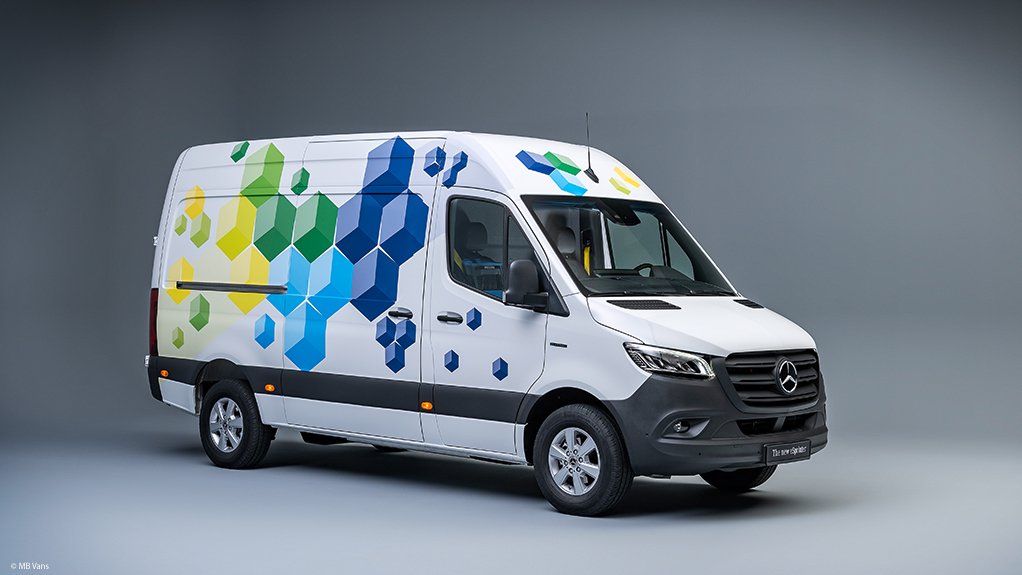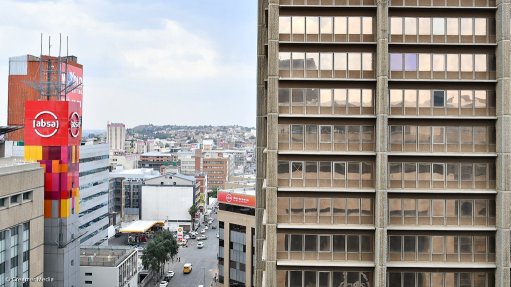Automotive experts agree new tech is essential to stay competitive
South Africa’s manufacturing sector has an opportunity to cater for global electrification by producing more solar panels, developing battery components and venturing into more components for the electric vehicle (EV) value chain, said Trade & Industrial Policy Strategies executive director Saul Levin.
In facilitating an automotive-industry-related panel discussion during the Manufacturing Indaba this week, Levin said there was untapped potential in many regions of Africa with existing automotive manufacturing capability and that global demand growth, coupled with Africa’s own market potential, presented opportunities for growth.
There is, however, variance in policy frameworks across African countries with some being more enabling than others for the development of the automotive industry.
In South Africa’s case, the automotive industry stood to lose 50% of its export markets if it continued manufacturing internal combustion engine (ICE) vehicles and components exclusively, said commercial vehicle supplier MAN Truck & Bus South Africa MD Jan Aichinger.
East London Industrial Development Zone (IDZ) senior manager Ayanda Ramncwana echoed this view, saying that the Eastern Cape was particularly vulnerable in terms of job losses if the automotive sector did not become future-proof.
The province accounts for 50% of the country’s automotive exports and hosts 70% of the country’s automotive component manufacturers.
To this end, the IDZ is working to attract new energy vehicle (NEV) manufacturers and increase localisation, as well as engender skills development, particularly as local demand for NEVs also continues to tick up every year.
Ramncwana said South Africa did not need a drastic overhaul of its manufacturing capability to increase NEV production and that much of the mechanics were generally similar – hence the country was well positioned to explore more NEV production opportunities.
She also expressed confidence in South Africa’s ports infrastructure and higher education institutions to support NEV manufacturing in terms of exports and skills.
Ramncwana highlighted, however, that manufacturers remained mindful of their main target customer and adapted their models accordingly.
While NEV demand was picking up, Metair Investments CEO Paul O’Flaherty pointed to the importance of remaining mindful of the massive existing ICE market in Africa, and how many countries were deferring emission reduction targets globally.
Similarly to what Ramncwana was saying, he noted that a balanced approach was necessary to cater for both the existing market, with Africa having 3.8% of the world’s vehicles, and new or international markets.
It also helps that many African countries are starting to ban the use of second-hand vehicles over a certain age, which will help decarbonise and modernise the market.
City of Windhoek urban and transport planning specialist Prisca Mayumbelo mentioned that emerging trends such as car-sharing, ride-hailing and mobility-as-a-service were making the transition to EVs easier. She determined these to be “low-hanging fruit” that the automotive industry could take better advantage of.
She further noted that the migration of people from remote villages to cities in search of economic opportunities highlighted the need for more affordable and accessible transportation – with mobility-as-a-service and ride-hailing to enhance accessibility.
Aichinger agreed that some use cases were “easier” to transition to EVs or NEVs, such as short-haul truck depots that had trucks return to site every night and could therefore charge overnight without needing extensive travelling range.
The speakers all agreed that South Africa needed an efficient rail network to improve transport efficiency and manufacturing competitiveness, which would also improve the business case for investing in NEV or EV manufacturing.
EV manufacturing company Everlectric co-founder Ndia Magadagela said the continued provision of government incentives, infrastructure improvements and tax rebates would be key to encourage more EV developments in the country – including battery or battery component production and more minerals beneficiation.
Article Enquiry
Email Article
Save Article
Feedback
To advertise email advertising@creamermedia.co.za or click here
Press Office
Announcements
What's On
Subscribe to improve your user experience...
Option 1 (equivalent of R125 a month):
Receive a weekly copy of Creamer Media's Engineering News & Mining Weekly magazine
(print copy for those in South Africa and e-magazine for those outside of South Africa)
Receive daily email newsletters
Access to full search results
Access archive of magazine back copies
Access to Projects in Progress
Access to ONE Research Report of your choice in PDF format
Option 2 (equivalent of R375 a month):
All benefits from Option 1
PLUS
Access to Creamer Media's Research Channel Africa for ALL Research Reports, in PDF format, on various industrial and mining sectors
including Electricity; Water; Energy Transition; Hydrogen; Roads, Rail and Ports; Coal; Gold; Platinum; Battery Metals; etc.
Already a subscriber?
Forgotten your password?
Receive weekly copy of Creamer Media's Engineering News & Mining Weekly magazine (print copy for those in South Africa and e-magazine for those outside of South Africa)
➕
Recieve daily email newsletters
➕
Access to full search results
➕
Access archive of magazine back copies
➕
Access to Projects in Progress
➕
Access to ONE Research Report of your choice in PDF format
RESEARCH CHANNEL AFRICA
R4500 (equivalent of R375 a month)
SUBSCRIBEAll benefits from Option 1
➕
Access to Creamer Media's Research Channel Africa for ALL Research Reports on various industrial and mining sectors, in PDF format, including on:
Electricity
➕
Water
➕
Energy Transition
➕
Hydrogen
➕
Roads, Rail and Ports
➕
Coal
➕
Gold
➕
Platinum
➕
Battery Metals
➕
etc.
Receive all benefits from Option 1 or Option 2 delivered to numerous people at your company
➕
Multiple User names and Passwords for simultaneous log-ins
➕
Intranet integration access to all in your organisation





















